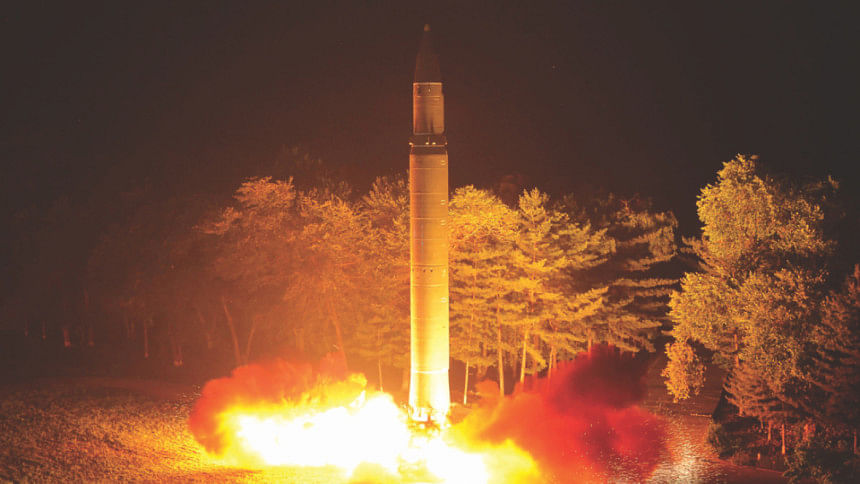North Korea fires several cruise missiles towards Yellow Sea: Seoul military

North Korea fired several cruise missiles towards the Yellow Sea on Wednesday, Seoul's military said, the latest in a series of tension-raising moves by the nuclear-armed state.
Pyongyang has accelerated weapons testing in the new year, including tests of what it called an "underwater nuclear weapon system" and a solid-fuelled hypersonic ballistic missile.
"Our military detected several cruise missiles launched by North Korea towards the Yellow Sea at around 7:00 am today," the Joint Chiefs of Staff said in a statement.
"The detailed specifications are being closely analysed by South Korean and US intelligence authorities," it added.
Unlike their ballistic counterparts, the testing of cruise missiles is not banned under current UN sanctions against Pyongyang.
Cruise missiles tend to be jet-propelled and fly at a lower altitude than more sophisticated ballistic missiles, making them harder to detect and intercept.
The latest launch comes as South Korea is conducting a 10-day special forces infiltration drill off its east coast, "in light of serious security situations" with the North, that runs until Thursday, according to the South's navy.
"We will achieve our mission to infiltrate deep into the enemy's territory and neutralize them completely under any circumstances," the drill's commander said in a statement.
'Principal enemy'
Recent months have seen a sharp deterioration in ties between the two Koreas, with both sides jettisoning key tension-reducing agreements, ramping up frontier security, and conducting live-fire drills along the border.
Last week, North Korean leader Kim Jong Un declared the South his country's "principal enemy", jettisoned agencies dedicated to reunification and outreach and threatened war over "even 0.001 mm" of territorial infringement.
The North Korean leader also said Pyongyang would not recognise the two countries' de facto maritime border, the Northern Limit Line, and called for constitutional changes allowing the North to "occupy" Seoul in war, the Korean Central News Agency (KCNA) said.
In Seoul, President Yoon Suk Yeol told his cabinet that should the nuclear-armed North carry out a provocation, South Korea would hit back with a response "multiple times stronger", pointing to his military's "overwhelming response capabilities".
At Pyongyang's year-end policy meetings, Kim threatened a nuclear attack on the South and called for a build-up of his country's military arsenal ahead of armed conflict he warned could "break out any time".
Earlier this month, the North launched a solid-fuel hypersonic missile, just days after Pyongyang staged live-fire exercises near the country's tense maritime border with South Korea, which prompted counter-exercises and evacuation orders for some border islands belonging to the South.
Kim also successfully put a spy satellite into orbit late last year, after receiving what Seoul said was Russian help, in exchange for arms transfers for Moscow's war in Ukraine.

 For all latest news, follow The Daily Star's Google News channel.
For all latest news, follow The Daily Star's Google News channel. 



Comments